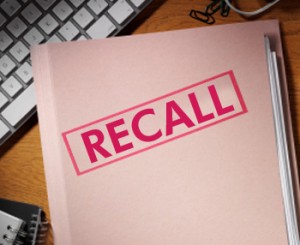Daily Archives: November 21, 2013
Product Liability in Georgia
Product liability is the area of law in which manufacturers or vendors of goods are held responsible for injuries caused by faulty or defective merchandise or products that are produced or sold. Product liability includes all parties along the chain of manufacture of any product. This includes the manufacturer of component parts all the way down to the retail store owner. The enforcement of manufacturers’ legal liability helps to make products safer for everyone.
In Georgia, there are three separate legal theories in which a manufacturer can be held responsible for injury or death caused by a defective product. These areas include Negligence, Strict Liability and Implied Warranties.
Negligence is the failure of a manufacturer of a product to exercise ordinary care. There are several ways in which a manufacturer may be liable for injury caused by their product including: negligent design; failure to adequately test and inspect; failure to provide instructions, warnings and labels; and failure to issue an adequate recall notice. Negligence cases can often times be difficult product liability cases because it requires the plaintiff to prove that the defendant’s conduct fell below the relevant standard of care.
Strict Liability refers to the rule applied in product liability suits making a manufacturer, seller or lessor of goods responsible for all defective items, regardless of intent or the exercise of reasonable care, that unreasonably threatens the personal safety of a consumer or the consumer’s property. In Georgia, the product liability law typically protects sellers (who are not manufacturers) of a product from liability under the strict liability doctrine.
Implied Warranties include the implied warranty of merchantability and the implied warranty of fitness for a particular purpose. Georgia law requires “privity of contract” in order to recover under implied warranty theories. An implied warranty refers to certain assurances that are presumed to be made in the sale of products due to the circumstances of the sale, regardless of whether the seller has expressed them orally or in writing.
Defective product liability lawsuits can be very confusing. Many different types of damages exist in these types of cases, only some of which may be available in a particular case. It is to your best advantage to hire an experienced and knowledgeable attorney when it comes to recovering loses in a product liability case. Contact Sunne Law today for a free consultation.

